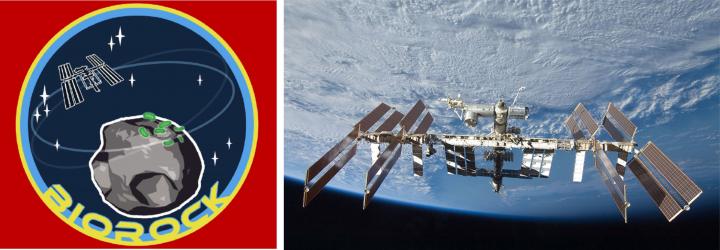BioRock - Biomining and Biofilms in Space
UKCA was the scientific coordinator of the European Space Agency (ESA) BioRock experiment to study microbe-mineral interactions on the International Space Station.
The BioRock experiment successully flew on the International Space Station in 2019.
BioRock investigated the growth of biofilms and their ability to extract nutrients and economically interesting elements from rocks. The experiment used the KUBIK centrifuges on the space station to study microbial growth and biofilm formation under micro-gravity, simulated Martian gravity (0.38 g), and simulated one gravity conditions.
The experiment investigated how microbes form biofilms, whether they can be used in 'biomining' of economically useful elements on other planetary bodies, as well as yielding new fundamental insights into how microbes grow in space conditions with applications to life support systems etc.
The experiment investigated three organisms: Sphingomonas desiccabilis, Bacillus subtilis and Cupriavidus metallidurans.
The experiment was a collaboration between the UKCA, SCK-CEN in Belgium and DLR in Germany.
You can read more about it here.


